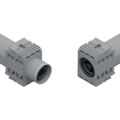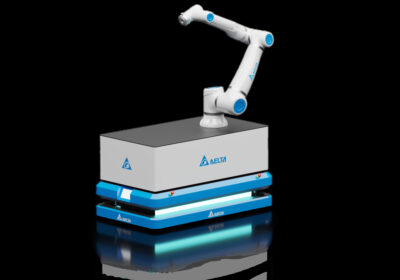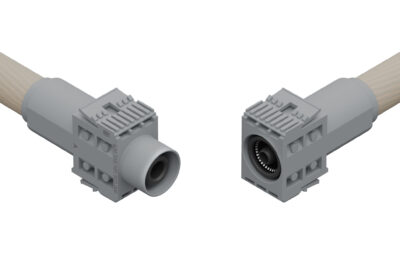~ Budget cuts lead to worries about research ~
In 2025, academia is facing an incredible amount of political and financial pressure. Following President Donald Trump’s return to the Oval Office in January, universities face further budget cuts against the backdrop of a lack of trust from reliable donors and scrutiny over ideological bias. As respected institutions continue to face cuts to their funding, there is a question mark over both the volume and quality of research that can be conducted. Here, Dekel Faruhi, VP of Product Adoption at academic image integrity specialist Proofig AI, examines the pressures that institutions face in 2025, and how research integrity is essential to academia’s very survival.
Due to the new federal funding policies including cuts to National Institute of Health (NIH) overheads, suspended grants and increased political scrutiny, academic institutions now face a very real financial shift.
Since Trump’s return to office, university funding has been in the spotlight as part of a wider focus on perceived waste, illustrated by the establishment of Department of Government Efficiency (DOGE). The administration has suspended federal grants to Princeton University from the Department of Energy, NASA and the Department of Defense, while Harvard University has seen up to $9 billion in federal funding come under the spotlight.
In addition, the NIH said they would be cutting billions in overhead payments by capping so-called indirect costs for researchers at 15 per cent, described as ‘a way to cripple lifesaving research and innovation[1].’ Overheads typically cover essential research costs, including equipment, administration, and researcher salaries. At the same time, negative media coverage of campus controversies has further affected institutions. Additionally, accusations have emerged that the Trump administration’s funding cuts are partly motivated by perceptions that conservative values are underrepresented in academia.[2]
The NIH’s decision to cap overhead support at 15 per cent sparked strong backlash from leading research institutions, prompting a federal lawsuit aimed at reversing the rule change. This legal action underscores the scientific community’s profound concern over the funding cuts, adding another layer of uncertainty for academic institutions already struggling to maintain essential research operations.[3]
A vicious cycle
As a result of these funding cuts, research integrity has become even more central – if it wasn’t already – to institutional credibility and financial stability. Research Integrity Officers (RIOs) and journal editors have warned that errors, even those that aren’t malicious but could lead to paper retractions, can seriously damage an institution’s reputation and funding. With federal support shrinking, donations have become the major funding source, making it essential to maintain the trust of donors, who care deeply about institutional credibility. Any integrity issues could risk reputational harm that deters donations and threatens long-term survival.
Research integrity, therefore, is no longer a compliance obligation, but an existential necessity to the survival of these academic institutions.
Current funding policies from the Trump administration mean that covering basic research costs, including equipment, administration and salaries are increasingly difficult, putting more stress on universities to plea for more support from donations. Nobel Prize winners are among 2,000 American scientists who warned that independent research is being jeopardised because of cuts and a ‘climate of fear’[4].
The renewed funding pressures come not long after the NIH has undergone reforms to promote transparency in the research process, including with its Data Management and Sharing Policy, which requires grant applicants to publicly share their data in a timely and transparent manner, as well as guard against any plagiarism, image or statistic misuse.
To safeguard research integrity, we recommend using a suite of quality-assurance tools. Proofig AI, for example, automatically screens images for manipulation, duplication, image plagiarism, and AI-generated images. Another widely used tool is iThenticate, which helps detect text plagiarism before submission. In addition, electronic lab notebooks (ELNs) like LabArchives or Biodata support good practices by organizing data and maintaining version history. Together, these quality-assurance tools help uphold standards across research outputs and guard against errors that can lead to retractions or reputational damage. While these solutions help uphold integrity, the broader funding pressures are already reshaping the global research landscape.

Looking elsewhere
Funding pressures in the United States have prompted top American scientists to seek opportunities abroad, particularly in fields seen as ideologically sensitive—such as climate change, diversity, and vaccines. According to the Financial Times[5], institutions in Europe and China are actively courting U.S.-based researchers. The president of the EU’s European Research Council has called the U.S. climate ‘discouraging for independent investigator-driven research,’ reflecting broader concerns that academic freedom and integrity are increasingly at risk.
The increasingly ideologically driven climate means researchers face tighter scrutiny and stricter rules, making effective tools to safeguard research integrity more crucial than ever.
The consequences of failing to safeguard research integrity are no longer theoretical—they are playing out in real time, with serious financial and reputational fallout.
In recent years, high-profile cases at leading universities and research institutions—including a $112.5 million settlement for research misconduct[6], fraudulent HIV vaccine funding scandals totalling $7.2 million[7], and controversies involving prominent figures[8] at top institutions[9]—have demonstrated the staggering financial and reputational costs of compromised research integrity[10]. In a political climate where funding for research is being increasingly eroded, ensuring research integrity is no longer optional—it is a survival imperative for institutions seeking to protect their reputation and secure critical funding.
Tools like Proofig AI for image integrity and iThenticate for text plagiarism offer essential safeguards against these catastrophic risks by providing automated, reliable integrity checks across different aspects of research output. These complementary solutions help institutions maintain trust, avoid devastating financial losses, and uphold the highest standards of scientific excellence. As funding challenges intensify in 2025, protecting research integrity has never been more critical.
[1] https://www.science.org/content/article/scienceadviser-slashing-nih-overhead-payments-sparks-outrage
[2] https://www.nytimes.com/2025/04/14/us/politics/trump-pressure-universities.html
[3] https://www.science.org/content/article/can-nih-overturn-court-order-blocking-it-slashing-overhead-payments-unlikely-one-expert
[4] https://www.npr.org/2025/04/01/nx-s1-5347411/scientists-trump-research-national-academies-open-letter
[5] https://www.ft.com/content/cdcbe3df-9475-4816-9a95-0df64838566f
[6] https://www.justice.gov/archives/opa/pr/duke-university-agrees-pay-us-1125-million-settle-false-claims-act-allegations-related
[7] https://apnews.com/16f04abe33e647228cb50d56709c93d7
[8] https://news.mit.edu/2005/misconduct
[9] https://www.thecrimson.com/article/2024/3/15/gino-harvard-investigation-report/








